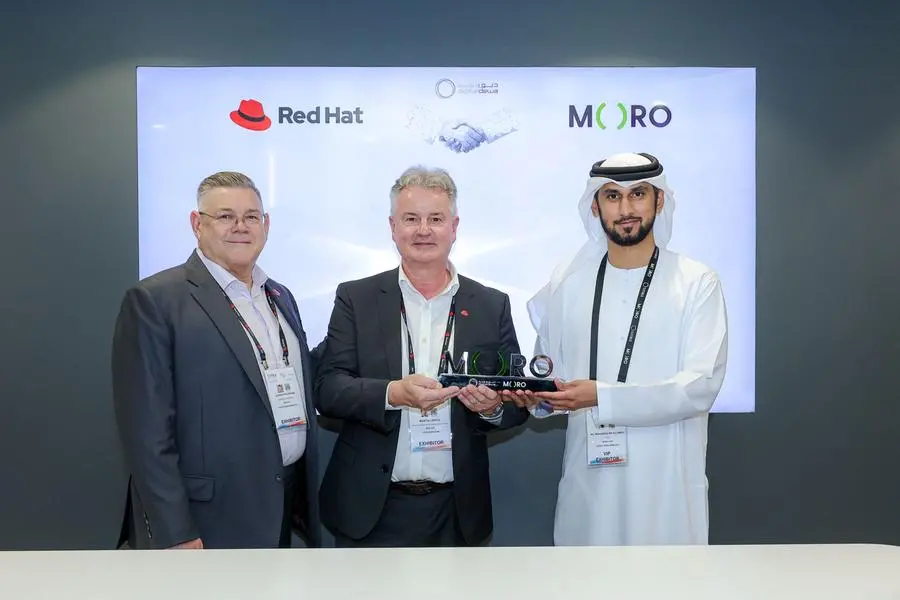PHOTO
Dubai, UAE: Moro Hub, a subsidiary of Digital DEWA, the digital arm of Dubai Electricity and Water Authority (PJSC), announced a collaboration with Red Hat, the world's leading provider of enterprise open-source solutions, to deliver Containers as a Service on Red Hat OpenShift. The announcement was in presence of Mohammad Bin Sulaiman, CEO of Moro Hub, and Adrian Pickering, Regional General Manager, MENA at Red Hat during GITEX 2024, which ran from 14th to 18th October at Dubai World Trade Center. The announcement marks the launch of Moro Hub’s Containers as a Service platform, hosted in the Moro Hub Green Data Centre, and using Red Hat OpenShift to provide an eco-friendly cloud computing solutions that aligns with the UAE’s vision for a sustainable digital future.
"This initiative is a significant milestone in Moro Hub’s ongoing efforts to align with the UAE’s ambitious sustainability goals. The Container as a Service platform not only represents a technological advancement, but also a strategic contribution to the UAE's commitment towards achieving net-zero emissions by 2050. By launching the offering on Red Hat OpenShift, we are not only providing our clients with top-tier cloud solutions but also contributing to the global push to reduce carbon emissions and fostering an eco-friendly digital landscape," said Bin Sulaiman.
By integrating Red Hat OpenShift, the industry’s leading hybrid cloud application platform powered by Kubernetes, with Moro Hub’s state-of-the-art green data center, which is the world’s largest solar-powered data center certified by Guinness World Records, this initiative sets a new benchmark in sustainable cloud computing
“We are proud to collaborate with Moro Hub on this transformative project. The launch of their Containers as a Service offering on Red Hat OpenShift demonstrates how innovative technology can be harnessed to drive both operational excellence and environmental sustainability goals. This initiative aligns with Red Hat’s vision of open hybrid cloud solutions that can benefit both businesses and enhanced sustainability for IT,” said Adrian Pickering.
The Container as a Service platform is designed to meet the increasing demand for environmentally conscious digital solutions. It can empower organizations to adopt cloud-native applications while helping to reduce their environmental impact and is expected to offer advanced cloud services, including containers, microservices, and DevOps, all while being hosted on infrastructure powered by renewable energy.




















